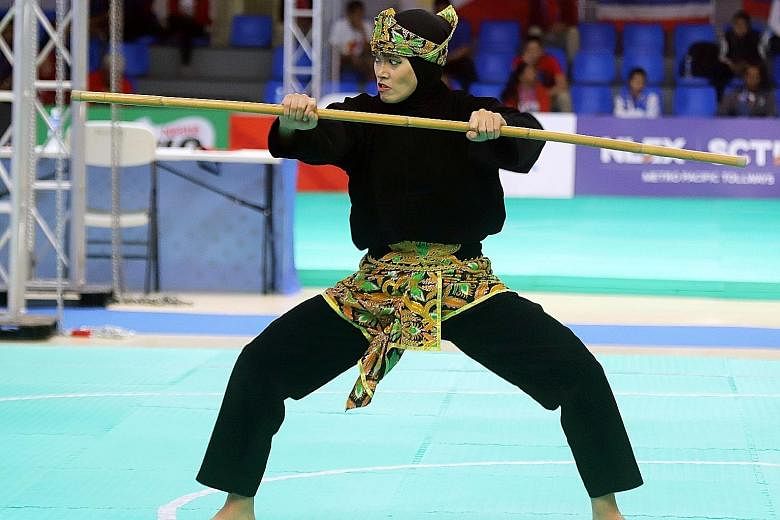Unesco has recognised South-east Asia's popular martial art of silat, claimed by both Indonesia and Malaysia, as part of the world's intangible world heritage.
Indonesia's pencak silat and Malaysia's silat were among 15 cultural practices inscribed by Unesco's Intergovernmental Committee for the Safeguarding of the Intangible Cultural Heritage into its Representative List of the Intangible Cultural Heritage of Humanity on Thursday in Bogota, Colombia.
Unesco acknowledged that apart from being a sport, pencak silat contains "mental-spiritual, self-defence and artistic aspects".
The United Nations organisation also recognised the richness marked not only by its terms in different parts of Indonesia, such as "pencak" in Java and "silat" in West Sumatra", but also its "moves, styles, accompaniments, music, and supporting equipment, which includes costumes, musical instruments and traditional weapons".
Meanwhile, it noted that silat, "the combative art of self-defence and survival", has roots in the Malay archipelago.
Many of Indonesia's and Malaysia's shared cultural traditions, from batik clothing to song and dance, have sparked disputes.
In 2007, the Malaysian government used a folk song titled Rasa Sayange, or Feeling Of Love, in its Truly Asia overseas tourism campaign, and this triggered protests from Indonesians who claimed the song as their own.
And in 2009, Malaysia's promotion for a documentary series on the Discovery Channel that featured a dance sparked another round of protests from Indonesians, who claimed the popular Pendet dance originated from the country's tourism hot spot, Bali island.
A crowd threw eggs and rocks at the Malaysian Embassy in Jakarta, while in another place, the Malaysian flag was burned.
Other disputes involved wayang (puppet) and batik, which Unesco put on its list of cultural heritage in 2008 and 2009, respectively.
The problem is not confined to the two nations, which share numerous cultural similarities. Last year, netizens and food bloggers in Malaysia and Singapore were involved in a heated debate over cendol.
Speaking about pencak silat, Indonesia's Foreign Ministry director for socio-cultural affairs and international organisations of developing countries, Mr Kamapradipta Isnomo, said the martial art was viewed as "strengthening comradeship and maintaining social order" not only in one region, but also nationwide and internationally.
"Indonesia is strongly committed to preserving pencak silat by way of its training not only as a sport and martial art, but also as an art and culture," Mr Kamapradipta said in a statement on Thursday.
In Malaysia, Tourism, Arts and Culture Minister Mohamaddin Ketapi said in a statement yesterday that the Unesco listing is "world-class recognition" for silat, which is "one of the country's most enduring cultural heritage treasures".
"The recognition will also reflect Malaysia's commitment to protect the world's heritage," he said.

